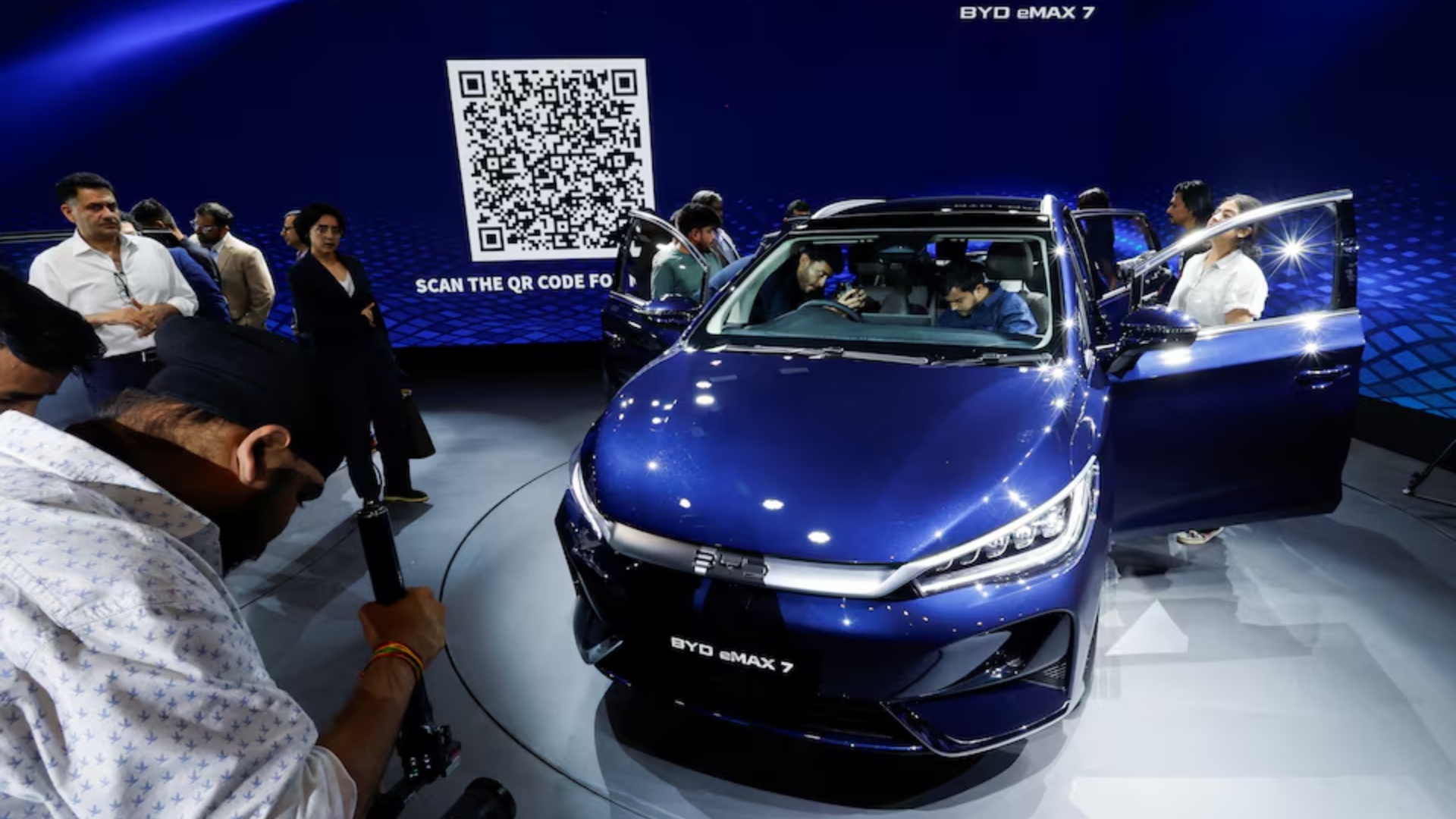NEW DELHI, (Reuters) – China’s BYD wants to make cars in India but has received no “direct” signal from New Delhi on a possible easing of stringent investment rules for Chinese businesses, a top executive said, as the automaker seeks to expand in a fast-growing market.
BYD 002594.SZ, in partnership with a local firm, submitted a $1 billion investment proposal last year to build electric vehicles in India. But New Delhi is yet to approve the plan after increasing scrutiny of investments from China following a 2020 border clash between the arch rivals.
“The ambition is always there but you need a lot of other things. (We) don’t have any direct signal,” Rajeev Chauhan, head of BYD’s passenger EV business in India, said when asked whether it had received any signs of an easing of investment rules.
“We do hope things will become a little better. That is the time we would definitely like to think a little more on this subject,” he said in an interview, referring to plans to build cars in India.
Increased scrutiny of Chinese businesses has already forced BYD rival Great Wall Motor (601633.SS), opens new tab to shelve plans to invest $1 billion in India, the world’s third-largest car market.
BYD is a small player in India, where it has invested $200 million and only sells imported EVs such as the Atto 3 SUV and Seal sedan. But India is an important market for the car and battery-maker, which is rapidly expanding globally.
Making cars locally would help BYD launch more competitively-priced EVs in India. While it waits for investment approval, it is targeting wealthy Indian buyers with its imported premium EVs, Chauhan said.
“There are a lot of players in the mass segment and quite a few players in the luxury segment. The premium segment, that’s where we are trying to reach and position. This is a space where we feel we belong, our cars belong,” he said.
Chauhan said BYD can build a niche for itself in the $24,000-$60,000 price bracket where competition is very low.
BYD launched on Tuesday a seven-seater family car in India called the eMax 7 priced at $32,000-$35,500, with a range of 420-530 kilometres (261-329 miles) on a single charge.
BYD sold about 2,300 cars in India in 2023, government data showed, and Chauhan expects to surpass that this year having already sold over 1,900 EVs in the first nine months of 2024.
India’s EV market, where local carmaker Tata Motors has about a 70% share, is small but growing. EVs made up about 2% of the 4.2 million cars sold in India last year and the government wants this to reach 30% by 2030.
Reporting by Aditi Shah; Editing by Alexander Smith and Mark Potter











